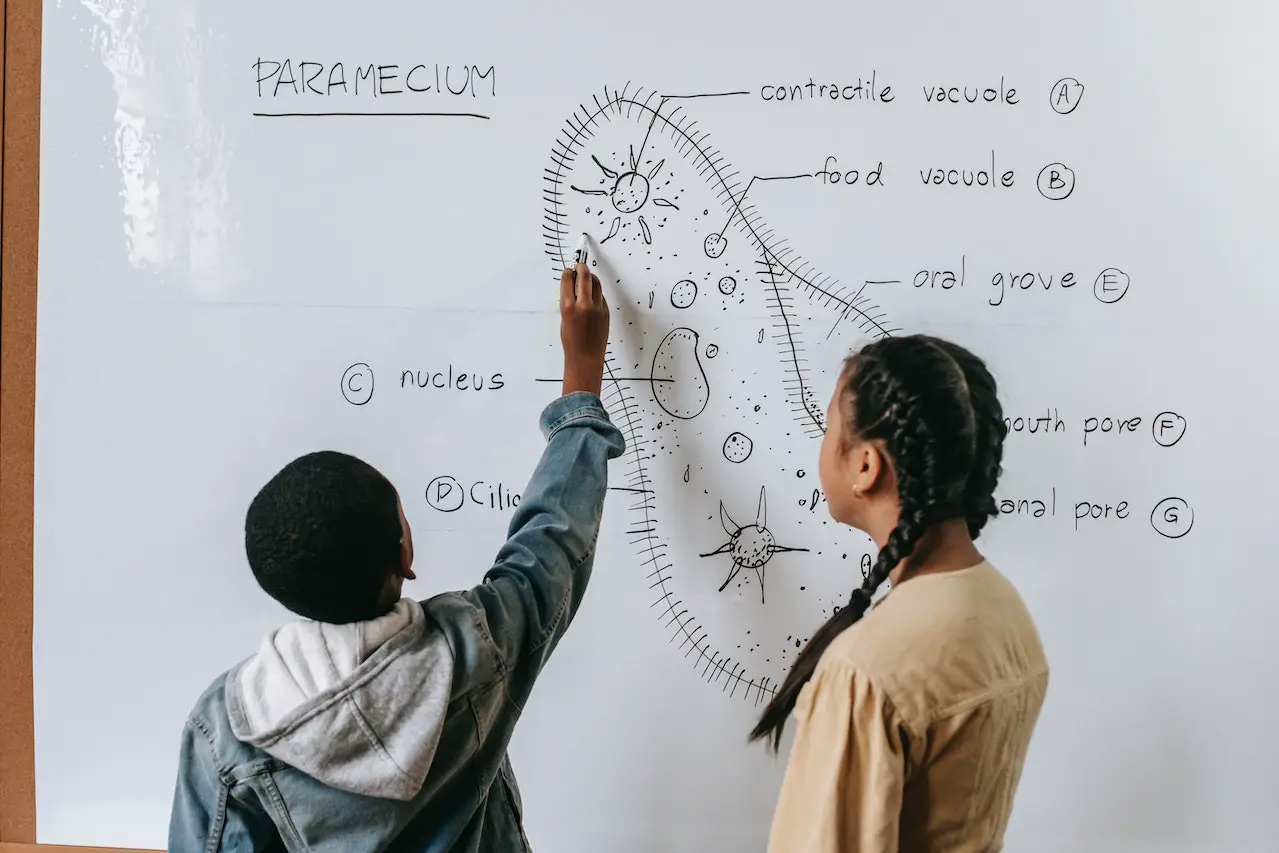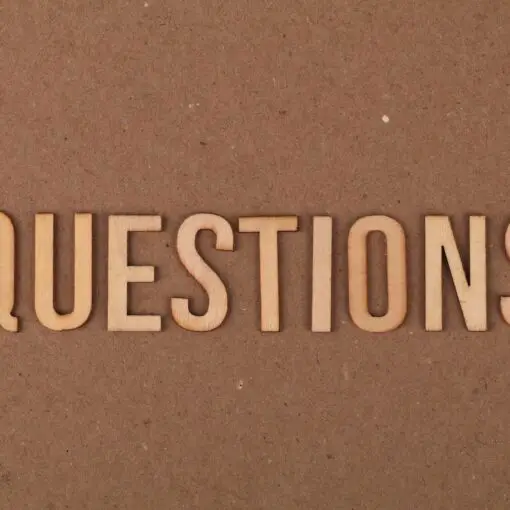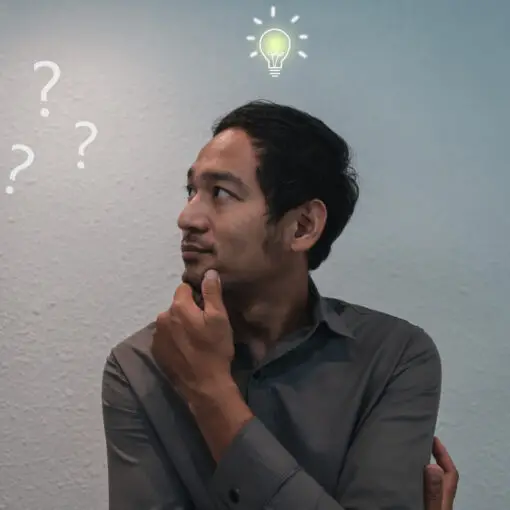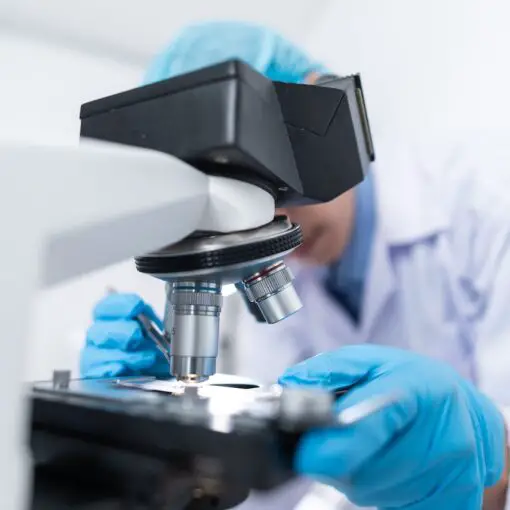Scientific thinking skills play a crucial role in the field of science, enabling individuals to approach problems methodically and make informed decisions. These skills encompass a range of cognitive processes, such as induction, deduction, experimental design, causal reasoning, concept formation, and hypothesis testing. By employing such techniques, one can analyze and evaluate data more effectively, leading to more accurate and objective conclusions.
At its core, scientific thinking revolves around making assumptions, testings these against available evidence, updating opinions based on the outcomes, and ultimately, drawing a reasoned conclusion. This step-by-step approach to problem-solving not only benefits scientific endeavors but also helps individuals become more diligent and strategic decision-makers in various aspects of life.
One of the key aspects of scientific thinking is its collaborative nature, frequently involving group efforts to achieve common goals. This encourages the sharing of ideas and fosters a growth mindset, in which individuals develop and refine their understanding of the world around them. Overall, scientific thinking skills allow individuals to tackle complex issues with greater confidence, knowledge, and clarity, ultimately leading to more profound insights and discoveries.
Importance of Scientific Thinking Skills
Scientific thinking skills play a crucial role in various aspects of our lives. They help us make sense of the world around us by enabling us to engage in systematic observation, analysis, and evaluation of information.
Reasoning is an essential component of scientific thinking. It allows us to process data and draw conclusions based on evidence. Utilizing both inductive and deductive methods, reasoning helps us form hypotheses, test them, and ultimately arrive at more informed decisions. Developing strong reasoning abilities is invaluable, whether in science-related fields or everyday life situations.
Analysis goes hand in hand with reasoning. It involves breaking down complex information into understandable and manageable components. Through careful examination of data, we are better equipped to identify patterns, trends, and relationships. This skill is particularly important when faced with vast amounts of information, for example, while conducting research or analyzing trends in various industries.
Problem-solving is a critical aspect of scientific thinking. It empowers us to identify issues, develop potential solutions, and implement the most effective approach. Fostering problem-solving abilities can increase efficiency and productivity in both professional and personal contexts, as it encourages individuals to approach challenges methodically and logically.
Efficiency is often inherently linked to the application of scientific thinking skills. As our reasoning, analysis, and problem-solving capabilities improve, we find ourselves working more effectively overall. This can lead to better decision-making and more streamlined workflows, which directly impact the quality of our professional and personal lives.
Finally, critical thinking plays a significant role in scientific thinking. By questioning assumptions, evaluating sources of information, and considering alternative interpretations, critical thinking supports informed judgement and objective assessment. In addition to enhancing scientific research, these skills can also significantly contribute to making well-informed decisions and fostering a deeper understanding of the world around us.
In summary, scientific thinking skills, such as reasoning, analysis, problem-solving, efficiency, and critical thinking, are essential for success in various aspects of life. By developing these skills, we can better understand, evaluate, and make sense of the world around us, ultimately leading to more informed decisions and a clearer perspective.
Foundational Elements of Scientific Thinking
Scientific thinking is a critical component of problem solving and decision making in various fields, as it involves a systematic approach to gathering information, formulating hypotheses, designing experiments, and evaluating evidence. In this section, we will delve into the fundamentals of scientific thinking, focusing on four essential sub-skills.
Observation and Data Collection
The foundation of scientific thinking lies in observations and data collection. By utilizing our senses, such as sight, touch, smell, and taste, we gather information about the world around us. Observations may be qualitative (e.g., colors, shapes, or smells) or quantitative (measurements or numerical data). Effective data collection involves:
- Paying close attention to details
- Accurately recording observations
- Distinguishing between relevant and irrelevant information
- Utilizing appropriate tools and techniques for measurement and data capture
Hypothesis Generation
After collecting data, the next step is to generate a hypothesis – an educated guess about the relationship between the observed phenomena. Hypotheses should be:
- Based on existing knowledge, observations, and data
- Testable and falsifiable – meaning they can be proven wrong through experimentation
- Clear and concise
Prediction and Experimental Design
Once a hypothesis is formed, it is necessary to devise a test to determine its validity. Creating a well-designed experiment requires:
- Identifying the independent (manipulated) and dependent (measured) variables
- Establishing a control group, which remains unaltered, for comparison to the experimental group
- Determining the sample size and controlling for possible sources of bias and confounding variables
- Making a prediction about the outcome, often in the form of “If…then…” statements
Evidence Evaluation and Drawing Inferences
After conducting the experiment, the final step in scientific thinking is to analyze the resulting data and draw conclusions. This involves:
- Evaluating the evidence objectively and impartially
- Comparing the results to the initial hypothesis and predictions
- Considering alternative explanations and acknowledging potential limitations of the study
- Using the results to refine the hypothesis, generate new questions, or inform further research
By incorporating these foundational elements, scientific thinking skills enable individuals to systematically approach problems, ask insightful questions, and develop evidence-based conclusions.
Scientific Decision-Making
Scientific decision-making is a crucial skill that involves evaluating different alternatives and choosing the most adaptive course of action based on evidence and reasoning. This process is firmly grounded in an individual’s ability, values, preferences, and beliefs, making it an essential component in problem-solving and everyday life (source).
The foundation of scientific decision-making lies in rigorous inquiry. This entails gathering relevant information, identifying patterns, making observations, and testing hypotheses (source). A significant aspect of this process is critical thinking, which involves making quantitative comparisons between datasets or data and models, and refining them based on the outcomes (source).
In order to make reliable decisions, it is necessary to question underlying assumptions and challenge previously held beliefs. This requires continuous examination of the evidence at hand and re-evaluation of conclusions when new information becomes available.
One effective approach to fostering scientific decision-making skills is by cultivating a supportive classroom atmosphere that encourages students to express their opinions and engage in meaningful debates (source). This can be achieved through targeted instructional models that emphasize the importance of evidence-based arguments and the development of clear, concise reasoning.
In conclusion, scientific decision-making is a valuable skill that promotes critical thinking, evidence-based reasoning, and rigorous inquiry. By challenging assumptions and continuously re-evaluating conclusions based on new information, individuals can make informed decisions that ultimately benefit themselves and those around them.
Think Like a Scientist
Thinking like a scientist is a valuable skill that can be beneficial in various aspects of life, including problem-solving and decision-making. Embracing scientific thinking skills allows you to remain objective, question your assumptions, and gather evidence-based information.
Science education plays a vital role in fostering this mindset. It helps to develop critical thinking, curiosity, and perseverance in learners. These skills are essential not only for scientists but also for anyone who wants to make informed decisions in their daily life.
To think like a scientist, start by embracing curiosity and asking questions. In the pursuit of knowledge, you should always be willing to question your assumptions and seek better explanations. Be open to new ideas, and don’t be afraid to challenge your beliefs. This mindset promotes humility over pride, which is a crucial aspect of scientific thinking.
Furthermore, work on developing the ability to make educated guesses or inferences. When faced with unknowns or ambiguous situations, use the available evidence to form a hypothesis. Remember that these educated guesses may not always be correct, but they can guide your thinking and lead to further investigation.
Incorporating the scientific method in your thought process is another effective way to think like a scientist. The scientific method involves:
- Asking a question or identifying a problem
- Developing a hypothesis
- Designing and conducting experiments to test the hypothesis
- Analyzing data and drawing conclusions
- Communicating the findings and debating the results with others
When approaching a problem, focus on the evidence and avoid letting personal biases or emotions interfere with the analysis. Remain open to changing your mind based on new information. This neutral and clear approach is a cornerstone of the scientific thought process.
In summary, honing your scientific thinking skills can lead to better decision-making and a deeper understanding of the world around you. By embodying curiosity, humility, and a systematic approach to problem-solving, you’ll be well on your way to thinking like a scientist.
Planning and Problem-Solving in a Complex Task
Complex problem-solving is a vital skill in various educational and vocational settings as well as everyday life. It is the ability to analyze, formulate, and execute a plan in order to address a multi-faceted issue. To successfully tackle a complex task, effective planning is crucial to help consider the interdependencies and effects of different aspects of the problem. Furthermore, this skill is essential for successful learning and achieving creative and inventive outcomes in various scenarios.
In dealing with a complex task, the first step in planning is to gather and process all the available information. This includes identifying the main elements and understanding the existing constraints within the problem. By doing so, we can develop a better understanding of the challenges and the potential solutions that can be applied while considering the interactions and interdependencies among these elements.
Once the information has been processed, the next step is to formulate a coherent strategy. This involves breaking down the main problem into smaller, manageable sub-tasks, prioritizing them, and allocating resources. Additionally, it is necessary to identify potential risks and obstacles, as well as to establish contingency plans for overcoming them. Combining inductive and combinatorial reasoning can play a significant role in the problem-solving process, as it helps in determining possible options and resolving conflicts when they arise.
As we execute the plan, it is essential to continuously monitor and evaluate the progress of each sub-task in achieving the overall goal. This helps to identify potential bottlenecks, revise strategies, and adapt to unexpected situations. Effective communication and collaboration skills are also crucial in complex problem-solving, as they facilitate sharing relevant information, insights, and ideas among team members who possess diverse backgrounds and expertise.
In conclusion, tackling complex tasks requires a combination of various cognitive skills, such as planning, problem-solving, and inductive reasoning, along with collaboration and effective communication. Developing these skills can greatly contribute to the ability to address a wide range of challenges in various domains, from professional to personal contexts
Control and Efficiency in Scientific Thinking
Control and efficiency are crucial aspects of scientific thinking, guiding researchers to reach accurate results and logical conclusions efficiently. A controlled approach involves careful manipulation of variables, adherence to the scientific method, and minimizing bias. This allows researchers to gain a comprehensive understanding of a given phenomenon and make reliable inferences.
Efficiency in scientific thinking is achieved by adopting strategies that optimize the way information is gathered, processed, and analyzed. For example, researchers may use experimental designs that allow them to test multiple hypotheses simultaneously. Moreover, scientists apply data analysis techniques, such as hypothesis testing, that streamline the process by eliminating less plausible explanations in favor of more evidence-supported theories.
Both control and efficiency contribute to the effective management of information in scientific research. By ensuring that experiments are carefully designed and conducted, researchers can trust the validity and reliability of their collected data. Furthermore, efficient processing and interpretation of information lead to a deeper understanding of scientific phenomena and allow for the development of practical applications and solutions.
The pursuit of control and efficiency in scientific thinking involves developing essential skills, such as critical thinking, deductive and inductive reasoning, and causal reasoning. These skills enable scientists to distinguish between relevant and irrelevant information, assess the quality of evidence, synthesize complex data, and formulate well-supported hypotheses.
In summary, control and efficiency in scientific thinking are vital components for researchers to effectively manage information in their work. They provide the foundation for making accurate and reliable conclusions, allowing science to progress and improve our understanding of the natural world.
The Role of the Author in Scientific Articles
In the world of research, the author plays a crucial role in the dissemination of knowledge through scientific articles. The primary responsibility of the author is to ensure that their work is accurate, reliable, and contributes to the existing body of knowledge.
One of the key aspects of the author’s role is to present a well-structured article, with a clear and concise abstract, comprehensive literature review, and defined methodology. The results section should be presented meticulously, while the discussion should interpret the outcomes and offer insights on potential implications. A thorough conclusion links the findings to broader contexts and outlines the significance of the research.
It is essential for authors to adopt a confident, knowledgeable, neutral, and clear tone while writing their scientific articles. This not only reflects the professionalism and expertise of the author but also facilitates readers’ understanding of the content.
In addition to the content, the author is responsible for adhering to ethical guidelines. This includes obtaining necessary permissions and disclosing any conflicts of interest. Moreover, accurate citation of sources is a crucial aspect of the author’s role, which helps in avoiding plagiarism and demonstrates proper attribution to the work of other researchers.
Collaborative research often involves multiple authors. In such cases, they should engage in effective communication to ensure transparency, clarify individual contributions, and define authorship order. Each co-author must take responsibility for their contributions, ensuring the overall integrity and credibility of the article.
In summary, the role of the author in scientific articles is multifaceted. A strong focus on accuracy, reliability, clarity, and ethical practices can help in producing high-quality research articles that contribute to the global body of knowledge.
Frequently Asked Questions
What are the key components of scientific thinking?
Scientific thinking involves a specific set of reasoning processes that enable understanding and problem-solving. These processes include induction, deduction, experimental design, causal reasoning, concept formation, and hypothesis testing. It is an approach that values objectivity, evidence, and systematic investigation.
How does one develop and improve scientific thinking abilities?
Developing and improving scientific thinking abilities requires practice, reflection, and continuous learning. Engaging in scientific activities, such as conducting experiments or analyzing data, can help strengthen these skills. Additionally, learning from experts, asking questions, and collaborating with others can support growth in scientific thinking.
What role does skepticism play in scientific thinking?
Skepticism plays a vital role in scientific thinking as it encourages questioning and critical evaluation of evidence. This skepticism allows individuals to challenge accepted beliefs and avoid jumping to conclusions. By fostering a mindset that requires evidence-based explanations, skepticism helps ensure that scientific claims can withstand scrutiny.
How is scientific thinking applied in everyday life?
Scientific thinking can be applied in everyday life by approaching problems systematically, making evidence-based decisions, and evaluating the quality of information. For example, when faced with conflicting information, you can apply the principles of scientific thinking by analyzing the source, considering the evidence, and drawing conclusions based on reliable data. Hence, it empowers individuals to make informed choices and solve problems in various aspects of life.
Why is scientific thinking critical for problem-solving?
Scientific thinking is critical for problem-solving because it promotes a methodical and objective approach to investigating issues. By focusing on evidence and employing reasoning processes, individuals can analyze complex problems, formulate hypotheses, design and conduct experiments, and ultimately derive conclusions. This systematic process allows for a deeper understanding of the problem and more effective solutions.
What differentiates scientific thinking from other forms of thinking?
Scientific thinking differs from other forms of thinking by its emphasis on objectivity, empirical evidence, and systematic reasoning. While other types of thinking may rely on intuition, personal beliefs, or tradition, scientific thinking is grounded in rigorous investigation, critical analysis, and the application of reasoning processes such as induction and deduction. As a result, it enables individuals to approach problems and make decisions more effectively and accurately.





